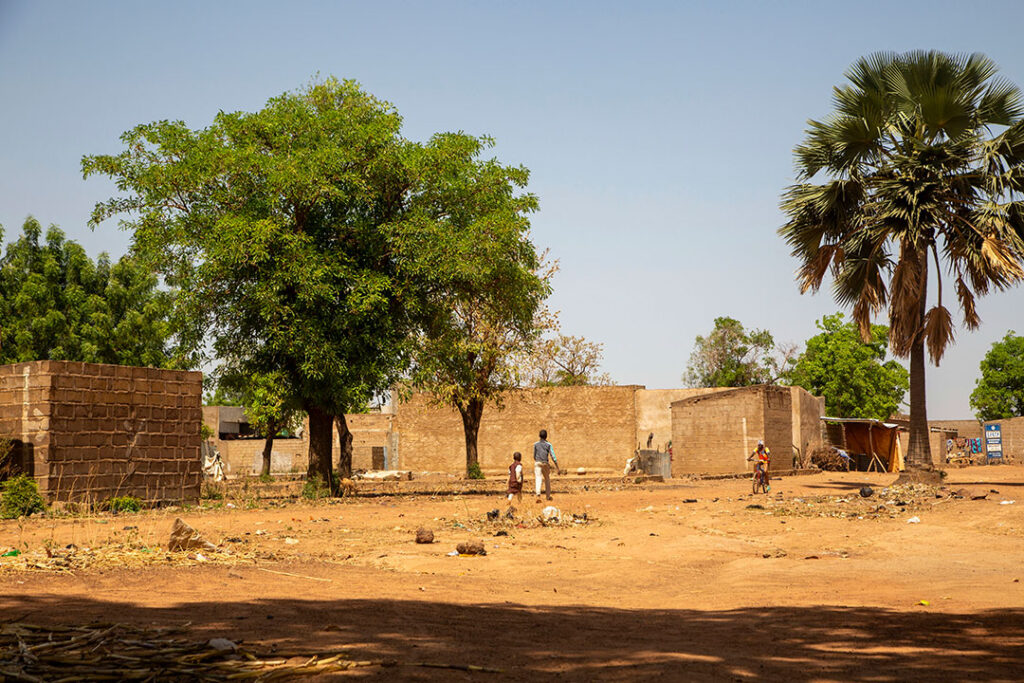Across the vast expanses of rural Burkina Faso, Mali and Niger, residents feel little influence from their central governments. That void has opened the way for the terrorist group Jama’at Nusrat al-Islam wal-Muslimin to spread its own influence by fulfilling local security needs while imposing strict Islamic law known as Shariah.
The organization, also known as JNIM, is an umbrella group comprising four insurgent groups aligned with al-Qaida. Since taking shape in Mali in 2017, JNIM has spread to Burkina Faso and Niger. Along the way, the organization has worked to recruit members of marginalized groups such as Fulani herders and Tuareg separatists in areas that have been largely ignored by national governments.
“JNIM’s strategy merges ideology with pragmatism, adapting to local realities and working through traditional and religious leaders to entrench itself in community structures,” analyst Anoushka Varma of the Soufan Center told ADF in an email.
JNIM offers basic services, security guarantees, and limited dispute resolution through Shari’a-based courts, schools, and informal goldmines.
“However, this service provision is sporadic, inconsistent, and not a clear-cut replacement for the functions of a functioning state. It is primarily coercive and transactional,” Varma wrote.
JNIM’s leader, Iyad Ag Ghali, is an ethnic Tuareg and a former Malian diplomat who led the 2012 uprising that sought to turn northern Mali into a separate Tuareg state called Azawad. JNIM’s deputy leader, Amadou Koufa, is an ethnic Fulani.
JNIM uses different methods to gain influence over local communities. One method uses propaganda videos to show the governments’ attacks, frequently aided by Russian mercenaries, on local communities. Subsequent videos show JNIM fighters distributing food and other resources to those communities. JNIM later launched retaliatory attacks on government forces in the names of those communities.
JNIM followed that script in March after denouncing a government attack near the community of Solenzo in western Burkina Faso that killed 130 Fulani residents. In retaliation, JNIM attacked a military camp in Diapaga and killed more than 30 Soldiers and volunteer fighters.
However, JNIM also uses blockades and sieges to control some communities.
“Local populations are often open to some compromise with JNIM because the state was unable to protect them,” Liam Karr, an analyst for the Institute for the Study of War, told Arab Weekly. “These deals lead JNIM to lift sieges, cease attacks or agree to protect populations, which helps bring a return to normalcy and peace.”
Communities that submit to JNIM rule gain a semblance of peace in exchange for Taliban-like restrictions on society, according to Varma. Men are forced to grow beards. Women are banned from public spaces. Music is forbidden. JNIM imposes its own levies on the communities to support its operations, but fighters also steal cattle to finance themselves.“These practices are clearly breaking from established practices and certainly not very popular,” Yvan Guichaoua, a senior researcher at the Bonn International Centre for Conflict Studies, recently told the BBC. “But whether it’s attractive or not, also depends on what the state is able to deliver, and there has been a lot of disappointment in what the state has been doing for the past years.”
The coups that toppled the democratically elected governments in Burkina Faso, Mali and Niger between 2021 and 2023 were rooted partly in frustration with the governments’ inability to rein in JNIM and other insurgent groups. Since those coups, attacks by JNIM and other groups have increased. JNIM now operates throughout Mali, in 11 of Burkina Faso’s 13 provinces, and in several provinces of western Niger. Escalating violence has earned the three Sahel nations the distinction of being the global epicenter for terrorism for the past two years.
As JNIM remains most powerful in rural areas and small villages, it appears to be shifting its strategy toward attacks on cities. In early July, JNIM launched seven simultaneous attacks that included cities in western Mali near the borders with Senegal and Mauritania. Government forces ultimately repelled those attacks, but they suggested a shift toward JNIM taking on larger targets. However, the group lacks the manpower to conquer a large city, according to experts.
Even as JNIM attacks cities, the balance of power with the government is largely unchanged, according to Ibrahim Yahaya Ibrahim, deputy project director for the Sahel at the International Crisis Group.
“The parties are fighting a war of attrition, with jihadist groups expanding in rural areas, and government forces and their Russian allies controlling urban centers,” Ibrahim wrote. “JNIM’s recent calls for Malians to mobilize against Bamako [the government] and its Russian supporters suggests that the group may be trying to encourage the regime’s collapse from within.”

